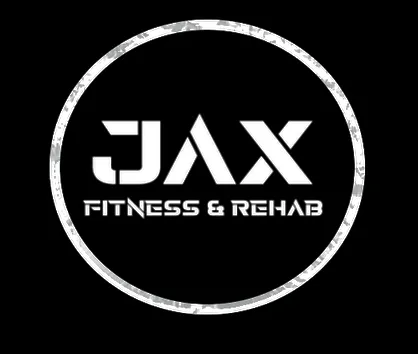
JAX Fitness & Rehab
KNOWLEDGE
Knowledge Is Power
Check Out Our Monthly Blog & Instagram Posts!
We frequently update our instagram with GUIDES and publish our blog post to keep you updated with the latest health and fitness tips!
Follow us on Instagram, Facebook, and SUBSCRIBE to our EMAIL & PHONE campaigns to remind you with your health & fitness goals!
LET'S STAY CONNECTED.

The Importance of Strength Training to Prevent Injury When Training for a Marathon
Training for a marathon is a demanding journey that requires dedication, endurance, and a well-structured plan. While many runners focus primarily on building mileage, one crucial component often overlooked is strength training. Incorporating strength training into a marathon training program is essential for preventing injuries, improving running efficiency, and enhancing overall performance.

Why Strength Training Matters for Runners
Running is a high-impact activity that places significant stress on the muscles, joints, and connective tissues. Without adequate strength, the repetitive motion of running can lead to muscle imbalances, overuse injuries, and biomechanical inefficiencies. Strength training helps counteract these issues by improving muscular endurance, stability, and coordination.

Key Benefits of Strength Training for Marathon Runners
1. Injury Prevention

One of the most compelling reasons for marathon runners to engage in strength training is injury prevention. Common running injuries such as shin splints, runner’s knee, Achilles tendinitis, and IT band syndrome often stem from muscle weaknesses or imbalances. Strengthening the muscles that support the knees, ankles, hips, and core can help reduce the risk of these injuries. Stronger muscles absorb impact more effectively, protecting joints and connective tissues from excessive strain.
2. Improved Running Efficiency

Strength training enhances neuromuscular coordination, which leads to better running mechanics. A strong core and lower body contribute to improved posture, stride efficiency, and overall running form. This means less wasted energy and a more economical running style, allowing runners to maintain speed and endurance with reduced fatigue.
3. Enhanced Muscular Endurance

Endurance is not just about cardiovascular fitness; it also depends on muscle endurance. Strength training builds the muscle resilience necessary to sustain prolonged efforts without fatigue. Strong muscles can maintain proper biomechanics over long distances, reducing the likelihood of compensatory movements that can lead to injury.
4. Balanced Muscle Development

Running primarily engages the lower body, but it’s crucial to develop upper body and core strength as well. Weaknesses in these areas can lead to poor posture and inefficient movement patterns. A well-rounded strength training routine helps balance muscle development, ensuring that all muscle groups contribute effectively to running performance.

Effective Strength Training Exercises for Runners
Incorporating the right strength exercises can make a significant difference in a runner’s injury resistance and performance. Key exercises include:
Squats: Strengthen the quadriceps, hamstrings, and glutes, which are essential for powerful strides.
Lunges: Improve balance and single-leg stability, reducing the risk of knee injuries.
Deadlifts: Enhance posterior chain strength, including hamstrings and lower back stability.
Planks: Build core strength for better posture and endurance.
Calf Raises: Strengthen the calves and reduce the risk of Achilles injuries.
Glute Bridges/Hip Thrusts: Activate and strengthen the glutes, which play a crucial role in propulsion and injury prevention.

How to Incorporate Strength Training Into Marathon Prep
Runners should aim to include strength training sessions 2-3 times per week, focusing on functional, compound movements that mimic running mechanics. Workouts should be tailored to complement running mileage, avoiding excessive muscle fatigue that could interfere with key training runs.

Conclusion
Strength training is a game-changer for marathon runners looking to prevent injuries and optimize performance. By developing a strong, balanced body, runners can withstand the demands of marathon training with reduced injury risk and improved efficiency. Whether you’re a beginner or an experienced marathoner, integrating strength training into your routine is an investment in longevity and success. Prioritize strength work alongside your running regimen, and you’ll be on the path to a stronger, healthier, and more resilient race day performance.
Post Address and Mail
Email:
info@jaxfitnessrehab.com
Address
FAIRVIEW:
1416 W 8th Ave #201, Vancouver, BC V6H 4A6
DOWNTOWN:
1160 Burrard St #508, Vancouver, BC V6Z 2E8
Get In Touch
Assistance Hours
Monday:
8 a.m.–9 p.m
Tuesday:
8 a.m.–9 p.m.
Wednesday:
6 a.m.–9 p.m.
Thursday:
8 a.m.–9 p.m.
Friday:
6 a.m.–8 p.m.
Saturday:
8 a.m. - 4 p.m.
Sunday:
11 am - 3 PM.
Phone Number:
(778) 771-0223
Studio:
1416 W 8th Ave #201, Vancouver, BC V6H 4A6
&
1160 Burrard St #508, Vancouver, BC V6Z 2E8
Call
(778) 771-3970
Email:
info@jaxfitnessrehab.com
Site: www.jaxfitnessrehab.com


